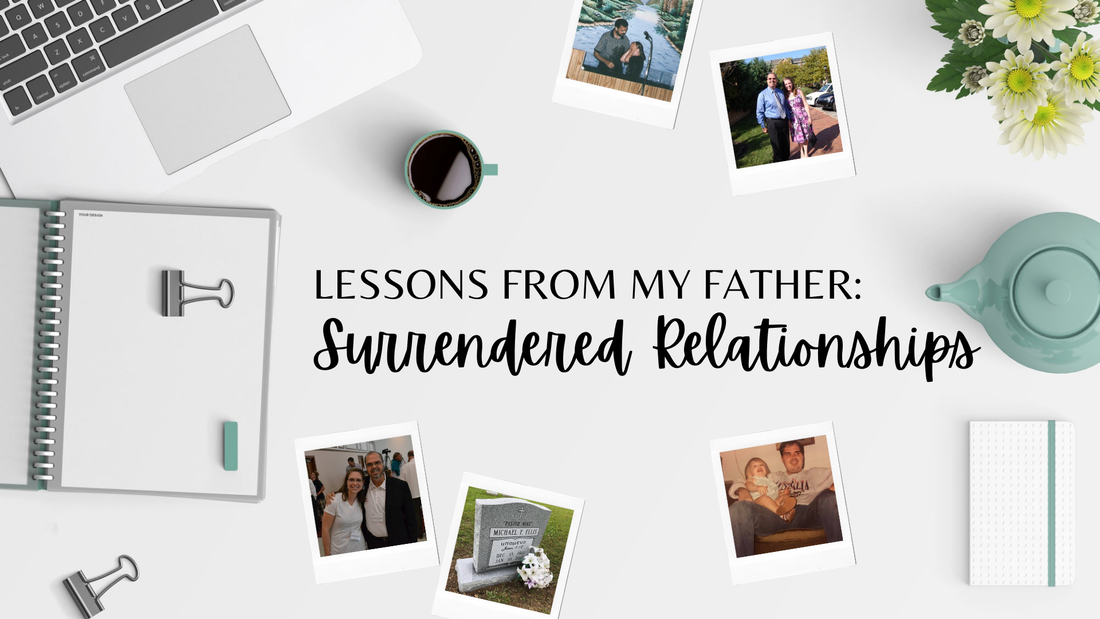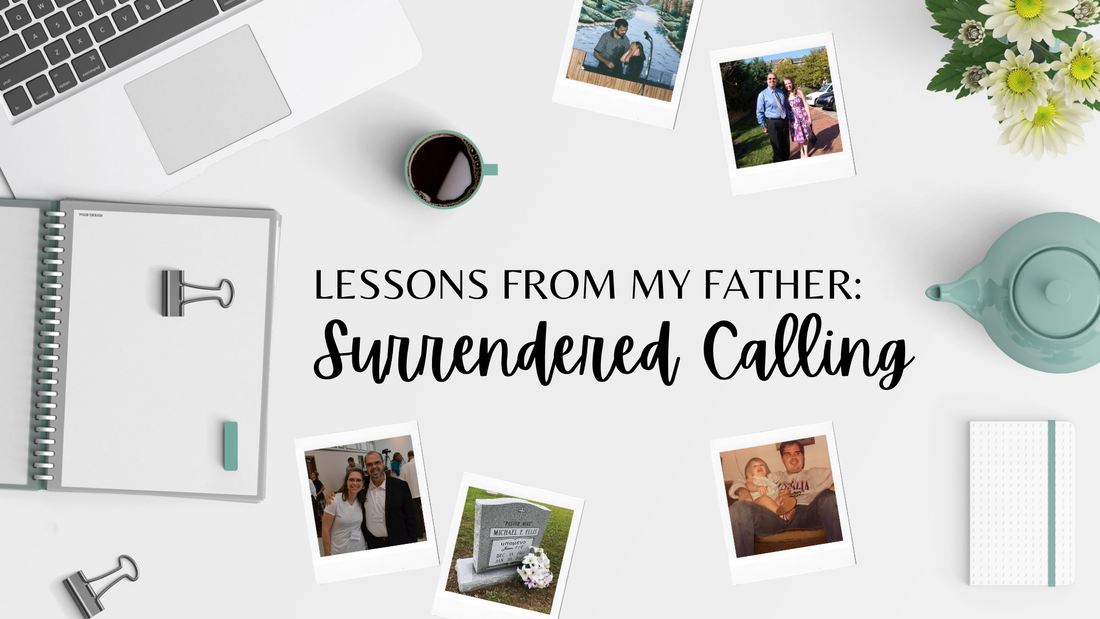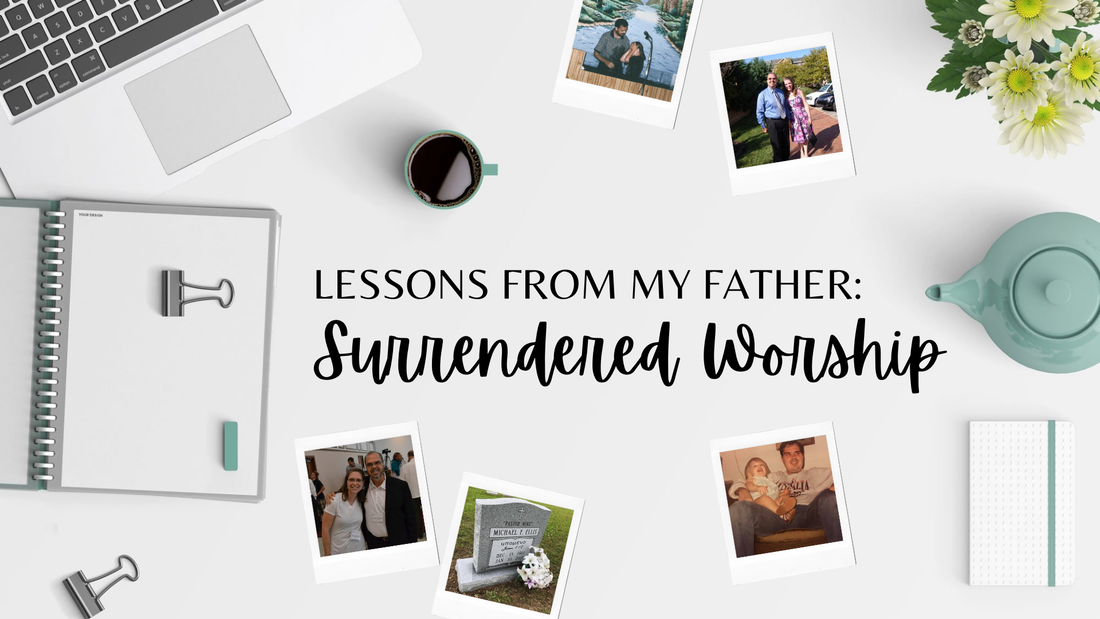|
Another lesson that my dad taught me about surrender had to do with relationships. None of these lessons I’ve been sharing have been easy, but this one was particularly difficult for me. And unfortunately, it’s one I’ve had to learn many times over. THE ROOT OF MY WRESTLINGThe first time I remember wrestling through surrender was when I was 14 years old. I went through a phase of immense fear, and it was almost entirely related to losing my parents and being alone. It eventually got to the point where I wasn’t even able to sleep, because I’d face dreams of losing my parents, or I’d be terrified something would happen to them overnight.
None of this was rational, obviously. But fear never is. When my dad realized what was happening, he sat me down to talk about it, as any good father would. But instead of reassurances about it all being in my head, or promises that nothing would happen, he instead challenged me with this: what if the worst did happen? In my fear, I wanted guarantees – don’t we all? - but my dad’s question stopped me in my tracks. “If the worst happens,” he said, “will you still trust God?” I didn’t know how to answer at first. At this point, I had not connected my fears with my relationship with God. What my dad was wisely pointing out is that my fear was not nearly as tied to him and my mom as I thought it was; rather, my fear was that God was not good, loving, or trustworthy. “If you don’t decide now that God is good and that you can trust him,” he explained, “then if or when something bad does happen, you will fall apart.” My dad then brought my struggles back to the start of my relationship with God. Was I sincere? Did I really surrender my life to Christ? If so, this was just the next step. God was calling me to act on what I’d said by trusting Him to care for my parents and for me, regardless of what that would end up looking like. “If you wait to decide,” my dad challenged me, “then you’ll decide wrong.” It was time to act on what I knew to be true, rather than what I felt could be true: God is good. God loves me. God loves my parents. God is in control. Even if the worst happens, these things are still true and God will help me through.
0 Comments
I’ve always loved my comfort zone. As a baby, I stubbornly clung to my comfort zone and refused to arrive on time. My poor mother had to be induced twice before I entered the world. As a child, I dragged my feet in whatever way I could when it came to something new. Learn to read? Why? I’d rather be read to. Tie my shoes? I’ll just stick with slip-ons. What’s that? You want to go on a roller coaster? #Nope. I could go on, but you get the picture.
One of the best things my parents did for me was push me beyond that comfort zone to try or to learn something new, even if it was uncomfortable. Not everything that I tried became a favorite (I still don’t like roller coasters), but I discovered many things that I actually enjoyed, such as reading. By the time I was a teenager, I always carried a book with me and easily read several each week. I’d like to say that I’ve grown into an adventurous adult who enjoys stepping out of my comfort zone, but I can barely even type that without laughing. Those who know me best know that’s not the case and probably never will be. I’m still prone to anxiety about the unknown, still withdraw from things that are uncomfortable, and many times cherish my comfort zone perhaps a bit too much. Thankfully, my husband and my mom recognize these things about me and still encourage me to take those scary first steps of something new or unknown, picking up where my dad left off and often using his (or my own!) words against me when it comes to change. When Life Falls ApartOn Thursday, January 6, 2017, my life began to change in a way I’d never experienced and wouldn’t dare to have imagined. My dad underwent surgery that morning, and before he was out of recovery, he went into cardiac arrest in an event unrelated to the procedure. While he was initially resuscitated, he was put on life-support as the doctors spent 5 days doing everything in their power to keep him alive. However, my dad’s life was not in the doctors’ hands. It was in God’s. And on January 10th, God finally brought my dad home to Heaven. Those that know me know how close I was with my dad. He was not just my father, but my best friend, my boss, and my Pastor. He was the greatest spiritual influence in my life, and so much of who I am today is because of him, especially in regard to my relationship with God and my passion for ministry. The days and months that followed his death were the hardest of my life to this point. I’m thankful for the many family and friends who surrounded my mom and me with support, encouragement, and love during that time, even as they were grieving themselves. I don’t spend much time thinking about that time of my life. It’s still too much to relive, and I don’t want to live in that place. However, there are times when I look back and marvel at how much God brought me through and how much grace I experienced in those days and months. As I realized that it has now been 5 years since all of this took place, I began to reflect. But instead of dwelling on the experience in the hospital, or in the roller-coaster of life that I went through in the months following, I began to think about some of the things my dad taught me over my life, and how those things helped me get through the enormous trial that God had brought me to that year. Surrendered LivingThe name of my website is “The Surrendered Life.” I actually chose this title less than a month before my dad died. I had no idea at the time I picked this theme that I’d have to live it so fiercely and so soon.
So much of what I learned about the importance, the significance, and the realities of surrendered living I learned from my dad – not just in his teachings, but in his living. Today, in honor of his 5th anniversary in Heaven, I want to begin a series where I’ll be sharing 5 areas of surrendered living that I learned from my dad in the 26 years that he poured into my life. Personal rights are a very sensitive topic. If you’re breathing, you know this firsthand. We’re in the midst of a pandemic that has shaken the world and as leaders attempt to regain control, millions cry out in protest due to their rights. I’m not here to say that politicians are right or wrong, or to speculate on their motivations, or to offer my opinions for a resolution Instead, I want to talk about the importance of our reaction to the perceived violation of our rights. The way we respond when we feel our rights are being trampled on reveals whether we are trusting in God or in ourselves. If we’re honest, the moment we feel our rights are violated, all bets are off. When it comes to a relational conflict, we tend to resort to catty remarks, abuse, or even ending relationships. On a larger scale, when rights are violated by the government, we often see rioting and violence. Are these healthy, productive, or godly responses to being oppressed? Absolutely not. But they are also not the problem; they are merely a symptom of the problem. The root of our problem is our sinful pride that causes us to demand our rights – from our co-workers, from our boss, from our friends and family, from society, and even from God. “Oh, but that’s not me.”
“I can’t help the way I am.” “It’s purely chemical.” “It’s the way I was raised.” “It’s my family history.” “It’s not my fault.” We’re often asked the question, “When life hurts, where do you turn?” It’s a good question, and it challenges us to learn to turn to Christ in the hard moments of life. But I want to pose a slightly different question to you today. “When life hurts, who do you blame?”
“We can never know who or what we are |
bethany HARRISIn a word: passionate. Archives
January 2022
Categories
All
|











